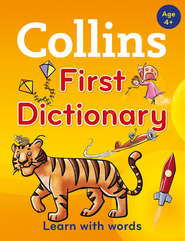По всем вопросам обращайтесь на: info@litportal.ru
(©) 2003-2025.
✖
Collins Primary Grammar, Punctuation and Spelling
Автор
Год написания книги
2019
Настройки чтения
Размер шрифта
Высота строк
Поля
The dog bit the man and then barked.
By removing the pronoun he and adding the adverb then, you get rid of the ambiguity.
Avoiding repetition
You use pronouns to avoid repeating nouns in a piece of writing.
My aunt lives in Rome. My aunt has lived there for twenty years. My aunt works as a translator.
> My aunt lives in Rome. She has lived there for twenty years. She works as a translator.
Expressing possibility
You can express the idea of possibility or uncertainty in two ways.
Modal verbs
You can use verbs like may, might, could and should to show that something is not certain.
We may be getting a puppy.
I might not be here when you get home.
The team could be moving to a new stadium.
Robert should be able to meet you at the station.
Adverbs
You can also use certain adverbs to show that something is not definite.
Maybe we can go next week.
Perhaps you can help me with this?
She is possibly too late to join the class now.
Types of English
The way you talk to your friends is not the same way that you talk to your head teacher. We write and speak in different ways, depending on the situation.
Informal language
This is how you write to friends or close family, for example in emails or texts:
Hey how R U? Soz i missed ur call. @ lazergame with jack n anna. It was beast! cant wait 2 go again. I’ll phone u l8r. ☺
Some features of informal language:
• slang words (beast)
• contracted forms (I’ll)
• abbreviations (R U, soz, ur, n)
• smileys or emoticons (☺)
• lack of punctuation (jack, anna, cant, i)
• informal greeting (Hey)
• short simple sentences
• simple vocabulary
• numbers or symbols (2 for to, @ for at or l8r for later)
Question tags
A question tag is a short question at the end of a statement. They are used to check that the listener agrees with the speaker. They are common in speech and informal writing but you should not use them in formal writing:
You’ve cleaned your room, haven’t you?
We’re not going to that, are we?
Formal language
This is the language you should use when you are writing things for school.
Dear Mrs Jenkins
I am sorry I missed your telephone call yesterday. I was out with two of my friends, Jack and Anna. We were at an attraction called Lazergame, where you chase and shoot each other with lasers. It was really good fun and I am hoping to go again soon.
I will see you at five o’clock on Friday, assuming your train is on time.
Yours sincerely, Eve
Some of the features of formal language:
• full forms (I am, you are, I will)
• use of capital letters (I, Lazergame, Jack, Anna)
• no slang (sorry not soz)
• longer, more complex sentences
• formal opening and closing (Dear, Yours sincerely)











